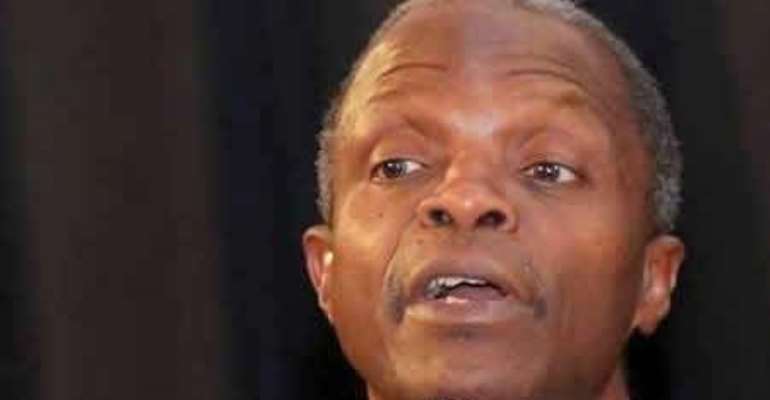Economic diversification: FG revises Nigeria’s import and export guideline

THE Federal Government has revised Nigeria’s import and export guidelines in a bid to restore growth through economic diversification, as enunciated in the recently released Economic Growth and Recovery Plan (EGRP).
It would be recalled that the World Bank in its ‘Trade Across Borders’ indicator of its most recent ‘Ease Of Doing Business’ ranking, Nigeria, requires up to 14 documents for imports, compared to just 5 in Rwanda.
According to impeccable sources at the Nigerian Customs Service (NCS), “On February 21, 2017, the Comptroller-General of Customs (CGC), Col Hammed Ali (Rtd.), was among several heads of Ministries, Departments and Agencies (MDAs) who gathered at the Conference Room of His Excellency, the Vice President, Prof Yemi Osinbajo (SAN) for the launch of the 60-Day National Action Plan on Ease of Doing Business by the Presidential Enabling Business Environment Council (PEBEC).
“A major first step was taken to achieve the target when the Department of Home Finance of the Federal Ministry of Finance revised Nigeria’s Import and Export Guidelines following a directive from the Honourable Minister of Finance, Mrs Kemi Adeosun, to streamline current procedures.
“The guidelines address some of the issues causing inefficiency and delays at the ports. Several of the newly inserted clauses in the Guidelines relate directly to the operations of the NCS.
“The NCS is now required to schedule and coordinate the Mandatory Joint Examinations and sign-off Form to ensure that there is only one point of contact between importers and officials.
“Before this intervention, the burden was on importers to reach out to all relevant agencies and the Terminal Operator to schedule a suitable time for the joint examination of cargo. We have however decided to take this tedious process off the backs of the importers and coordinate same.
“Similarly, the minimum cargo placement notice time for examination required by Terminal Operators has been reduced from 24 hours to a maximum of 12 hours. This means that after the NCS agrees with all parties on a suitable time for physical examination, Terminal Operators now only require a 12 hour notice to place the cargo for examination.
“Under the revised Guidelines, Shipping Lines are required to electronically transmit advanced manifest of their cargoes to the NCS and the Nigerian Ports Authority (NPA) as soon as the vessel departs the last port of call – this is to ensure there is enough time for risk assessment, profiling and optimised placement of cargo. NCS Officers will then circulate the cargo manifests to other examination agencies and the Terminal Operators as soon as same are received from the Shipping Lines. Shipping Lines which fail to transmit the advanced cargo manifest may be denied berthing rights.
“The above guideline is critical because one major reason for delays at the ports is the less than optimal cargo placement and offloading processes. Most times, terminal operators are unaware of the contents of a container and are thus unable to determine if same requires physical examination or not. With prior knowledge of contents, terminal operators can ensure that containers, which do not need physical examination and would consequently require less time to offload are placed ahead of those that will require examination in order to prevent delays and pileup of cargo.
“Another reason for the delays at the ports during the import process is the haphazard manner in which goods are packed in containers. Different types of goods are just dumped in the container and imported into Nigeria, slowing the pace of physical examination and making it impossible for modern equipment to be used to examine containers.
“To solve that problem, Shipping Lines are now required to ensure that imports into Nigeria are well arranged in pallets. Shipping Lines which fail to ‘palletise’ cargo will be sanctioned and maybe asked to take back onboard the non-palletised cargo.”
